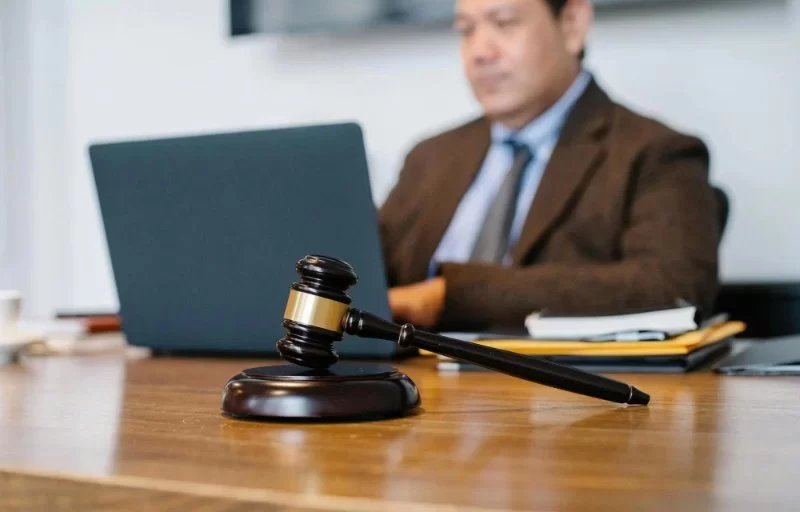
- 1 - Understanding Court-Appointed Lawyers
- 2 - How Court-Appointed Lawyers Are Funded
- 3 - When Defendants Have to Pay for a Court-Appointed Lawyer
- 4 - The Difference Between Public Defenders and Private Appointed Lawyers
- 5 - Real Case Examples of Legal Fees and Reimbursement
- 6 - Common Misconceptions About Court-Appointed Attorneys
- 7 - ESPLawyers Professional Insight and Guidance
Understanding Court-Appointed Lawyers
In the United States, every person accused of a crime has the constitutional right to legal representation. If someone cannot afford to hire a private attorney, the court appoints one to ensure a fair trial. These court-appointed lawyers—often called public defenders—are either government employees or private attorneys who take cases under contract with the court.
The question many people ask is, “who pays court-appointed lawyers?” The answer depends on the state, the type of case, and the defendant’s financial status. Generally, the government—through county or state funds—covers the cost. However, there are exceptions where defendants may be required to repay part or all of those fees.
How Court-Appointed Lawyers Are Funded
1. State and County Budgets
Most public defense systems are financed by a combination of state and local funds. Some states operate a centralized system, while others delegate funding to individual counties. The salaries of full-time public defenders come from these public funds, ensuring that defendants without financial means still receive professional legal help.
2. Federal Contributions and Grants
In certain cases, especially those involving federal crimes, public defense costs may be supplemented by federal programs such as the Criminal Justice Act (CJA). Additionally, nonprofit organizations and legal aid groups sometimes assist with defense costs through grants or charitable funds.
When Defendants Have to Pay for a Court-Appointed Lawyer
While the idea of a “free lawyer” is common, the reality is more nuanced. Many states require defendants to undergo a financial assessment—often called an indigency determination—to decide if they qualify for free representation. If their income exceeds the threshold, they may need to contribute a partial payment or repay the costs after the trial.
For example, a defendant who is found guilty might be ordered to reimburse the state for part of their defense expenses. In some jurisdictions, even those initially granted free representation must pay a small administrative fee, typically ranging from $25 to $200. This system aims to balance fairness with fiscal responsibility, ensuring that limited public funds are used efficiently.
The Difference Between Public Defenders and Private Appointed Lawyers
1. Public Defenders
Public defenders are salaried government employees who handle large caseloads of criminal defense work. They are highly experienced in court procedures and plea negotiations but often face time constraints due to high demand. Their services are entirely funded by public money unless reimbursement is required post-trial.
2. Private Appointed Lawyers
In areas without public defender offices, courts may appoint private attorneys who agree to represent indigent clients for a fixed rate. These lawyers are paid directly by the court using taxpayer funds. Their compensation typically follows a set hourly or per-case rate established by the jurisdiction.
Real Case Examples of Legal Fees and Reimbursement
Consider a 2022 case in Texas, where a defendant was assigned a court-appointed attorney after losing his job. Though initially declared indigent, he later secured employment during trial proceedings. The court subsequently ordered him to pay a portion of his defense costs, totaling $450. This case illustrates how the court re-evaluates financial status throughout the legal process.
In contrast, a similar case in California showed that many defendants remain permanently exempt from repayment if repayment would cause undue hardship. These examples highlight how regional laws and personal circumstances shape who ultimately pays for legal defense.
Common Misconceptions About Court-Appointed Attorneys
1. “Court-Appointed Lawyers Are Free for Everyone”
While they are publicly funded, not everyone qualifies for free representation. Courts conduct income assessments, and repayment may be required later. The goal is to ensure fairness without overburdening taxpayers.
2. “Public Defenders Are Less Skilled”
This is a common myth. Many public defenders are among the most experienced trial lawyers, handling complex criminal cases daily. The main challenge they face is not skill but workload. Understanding this helps defendants set realistic expectations about communication and case timelines.
ESPLawyers Professional Insight and Guidance
ESPLawyers 【 】 emphasizes that understanding who pays court-appointed lawyers is vital for anyone navigating the justice system. The financial implications can vary widely depending on the state and the nature of the charges. Consulting with experienced legal professionals can clarify whether repayment may apply and how to prepare for potential costs.
At ESPLawyers 【 】, clients can access clear guidance on public defense procedures, eligibility assessments, and post-trial payment obligations. Their team helps individuals protect both their rights and finances—because justice should never depend solely on income. For those seeking trustworthy legal advice or representation, reaching out early ensures better outcomes and fewer financial surprises.








